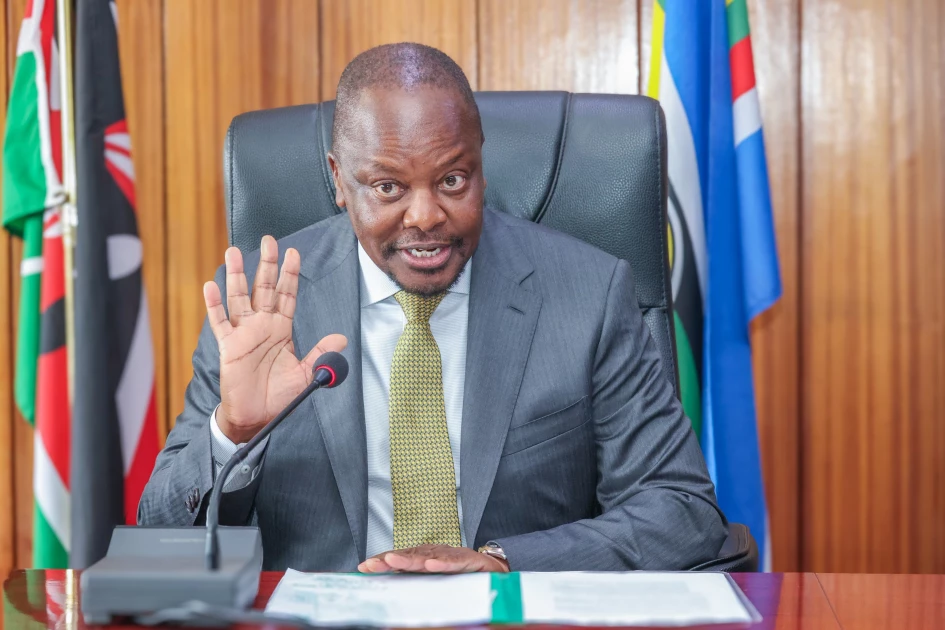Gov’t to launch programme seeking to deliver 6 million new jobs

Agriculture and Livestock Development CS Mutahi Kagwe speaks during the rollout of the JobsConnect Compact on November 19, 2025. PHOTO | COURTESY

Audio By Vocalize
Kenya is set to roll out the JobsConnect Compact, a global
framework expected to deliver six million new and greener jobs by 2030,
Agriculture and Livestock Development Cabinet Secretary Mutahi Kagwe has
announced.
The CS revealed the plan during a briefing at Kilimo House
with senior officials from the World Bank’s Regional Office and founding
members of the MADE Alliance drawn from Mastercard, Equity Group, Microsoft and
the Kenya National Federation of Farmers (KENAFF).
Kagwe said Kenya would become the first African country to
complete the framework, describing it as a major step in expanding dignified
employment opportunities within a modernised agriculture sector.
He confirmed that all digitisation projects within the
Ministry have now been consolidated under the Kenya Agriculture Data and
Information Centre (KADIC), which will serve as the central hub for the
sector’s full data ecosystem, including KIAMIS.
To streamline information flow, the CS announced that the
Agriculture Information and Resource Centre (AIRC) will be relocated to KADIC
“to eliminate data duplication and strengthen real-time linkages between
farmers, counties, cooperatives, markets, and processors.”
KADIC leadership said the Centre is preparing to spearhead the
rollout of the Digital Agriculture Roadmap next year.
Director Betty noted the roadmap will drive technology
adoption at scale, while Director of Digital Services Juma Salim said
integrating data from the Ministry’s 31 parastatals will ensure farmers access
“timely and actionable information.”
The JobsConnect Compact will target job creation, food
security, and a shift towards local production, with projections showing 5.3
million new and better jobs, a reduction of food-insecure households by 10
million, import cuts worth between USD 2–3 billion, and an additional USD 5
billion in agricultural export earnings.
Kagwe underscored the role of digital agriculture in improving
farmer incomes and drawing youth into a tech-enabled value chain.
He highlighted an ongoing human resource transition in the Ministry,
with “30% of departmental heads due to retire, 20% already retired, and over
half the workforce set to exit within two years,” calling it an opening to
rebuild capacity through Agri-Connect, agri-preneurship training, Kenya
Agriculture College programmes, and digitised soil testing services.
During the briefing, Mastercard showcased its payment infrastructure, observing that only 2% of farmer transactions currently move through M-Pesa—an issue the company said limits financial visibility across the value chain.
Equity Bank executives reaffirmed that agriculture remains one of
the bank’s core pillars, supporting efforts to boost yields, savings and
long-term wealth creation for farmers.
Kagwe also raised concern over the high cost of credit in the
sector, stating that agriculture “cannot operate under 18–19% commercial
interest rates” and pushing for a guaranteed lending model with 5% interest as
a sustainable alternative.
He pointed to continued government investment in subsidising
production, citing the Ksh.61 billion fertiliser subsidy programme and a Ksh.17
billion agricultural credit facility meant to stabilise output and make inputs
more affordable.


Leave a Comment